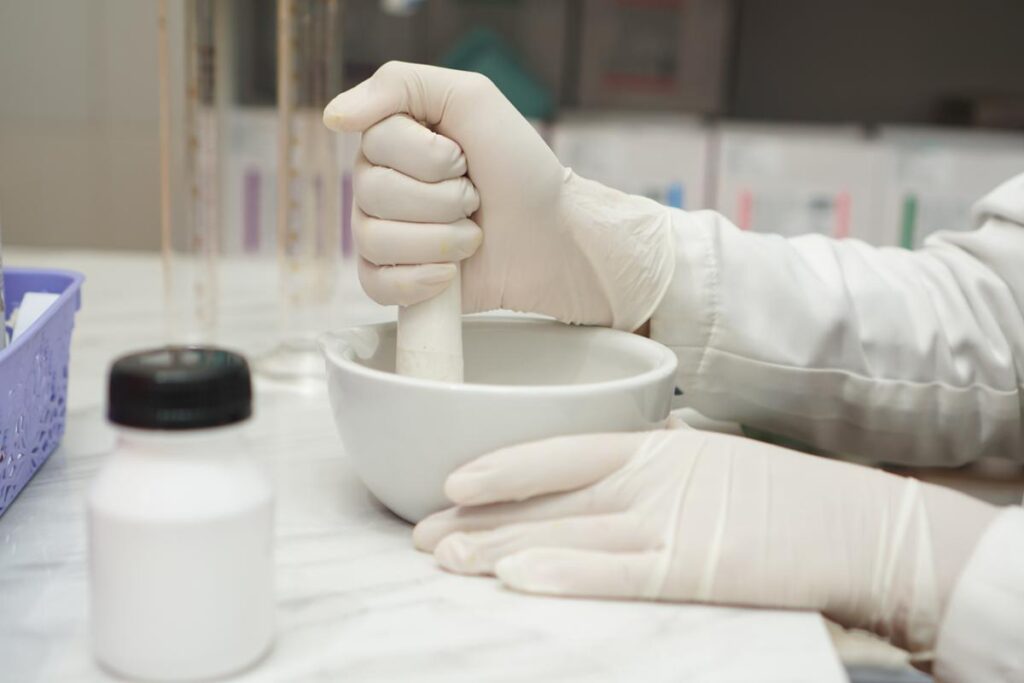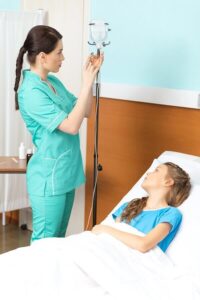The Texas Board of Nursing (BON) licenses and oversees all Texas nurses. As a result, if BON receives a complaint against a nurse for violating an applicable rule or law, including those related to drug compounding, it must investigate and determine whether enforcement action against the nurse is necessary.
If BON ultimately decides that you have violated a rule or law, you could face sanctions that are extremely damaging to your license and career.
A nursing license defense lawyer can guide you through any disciplinary proceedings that you may be facing and help you fight to safeguard your license and career.
Understanding Drug Compounding
According to the Food and Drug Administration (FDA), drug compounding is “the act of combining, mixing, or altering ingredients to create a medication that is specific to an individual patient.”
Compounded drugs are not commercially available as premade drugs and are not FDA-approved. These drugs are particularly helpful when, for instance, a patient cannot take a commercially available drug due to allergies or other reasons or needs a dose that is unavailable from the drug manufacturer.
Nurse Preparation of Compound Drugs
When a patient needs a compounded drug, a nurse may receive an order or delegation to prepare the drug. Pursuant to that order or delegation, a nurse may prepare a compounded drug consistent with their individual scope of practice for immediate usage on-site. However, the nurse may not prepare the compounded drug for off-site usage.
Improperly compounding drugs can lead to adverse events for patients treated with the drugs. Contaminated compounded drugs can lead to patient infection, illness, and even death.
As a result, nurses must ensure that they have the necessary training, education, knowledge, support, resources, equipment, and space to prepare compounded drugs properly.
The United States Pharmacopeia (USP) outlines standards for properly compounding drugs. For instance, this resource contains a section on sterile preparations to avoid contamination of compounded drugs. All nurses should know the USP and its recommendations when compounding drugs.
Standards of Nursing Practice and Compounded Drugs
22 Tex. Admin. Code §217.11(1) outlines the minimum standard of practice applicable to all levels of licensed nurses. According to the BON, several of the standards outlined in this rule are directly applicable to drug compounding, including the following:
- Know and conform to the Texas Nursing Practice Act and the board’s rules and regulations, as well as all federal, state, or local laws, rules, or regulations affecting the nurse’s current area of nursing practice;
- Implement measures to promote a safe environment for clients and others; and
- Know the rationale for and the effects of medications and treatments and shall correctly administer the same.
Nurses must know all laws, rules, and regulations that apply to compounding, including rules for sterile compounding in the pharmacy setting established by the Texas State Board of Pharmacy (TSBP).
The responsibility of compounding drugs mandates that nurses take necessary measures to prepare compounded drugs correctly and prevent any contamination during the process.
Nurses also should understand that the FDA does not approve compounded drugs, which constitute off-label use of FDA-approved drugs. While off-label use of drugs is supported by research, nurses must have the knowledge, safeguards, and potential risks associated with compounding drugs.
If nurses have concerns about the safety of a compounded medicine or their ability to properly prepare it, they should act in a way that is in their patient’s best interests.
This duty is particularly important because nurses often are the last healthcare professionals to evaluate a compounded drug’s use before giving it to a patient.
Other relevant standards of practice under 22 Tex. Admin. Code §217.11(1) that relates to the compounding of drugs includes the following:
- Obtain instruction and supervision as necessary when implementing nursing procedures or practices;
- Make a reasonable effort to obtain orientation/training for competency when encountering new equipment and technology or unfamiliar care situations;
- Clarify any order or treatment regimen that the nurse has reason to believe is inaccurate, non-efficacious, or contraindicated by consulting with the appropriate licensed practitioner and notifying the ordering practitioner when the nurse makes the decision not to administer the medication or treatment;
- Implement measures to prevent exposure to infectious pathogens and communicable conditions; and
- Accept only those nursing assignments that consider client safety and are commensurate with the nurse’s educational preparation, experience, knowledge, and physical and emotional ability.
With respect to compounding drugs, these standards require that nurses speak with other nurses or pharmacists if they are unsure about the specific compounding process.
If nurses are uncomfortable with what instruction they have, they should obtain supervision before compounding a drug. To the extent necessary, nurses should familiarize themselves with the procedure in the USP and avail themselves of continuing education requirements concerning compounded drugs.
The safety of a patient is paramount. As a result, nurses must complete a nursing assessment of all patients to determine the appropriate medication use for those patients.
Nurses should consult with the ordering providers if questions arise about the appropriateness of compounded drugs to treat a particular patient. They cannot blindly rely on the physician’s ability to issue orders properly; nurses maintain their own licensure and are responsible for providing safe patient care.
Finally, nurses should be able to assess their own scope of practice and ensure that preparing compounded drugs falls within that scope. The BON Scope of Practice Decision-Making Model (DMM) can assist nurses in making these determinations.
Click to contact our professional license defense lawyers today
Get Legal Advice and Protect Your Nursing License
A Bertolino LLP nursing license defense lawyer can review your case and help you determine the best strategy to oppose the allegations against you.
We can work to protect your license and minimize the impact of the disciplinary complaint that you are facing. Call us today at (512) 980-3751 or get more information about us online.
Call or text (512) 476-5757 or complete a Case Evaluation form






